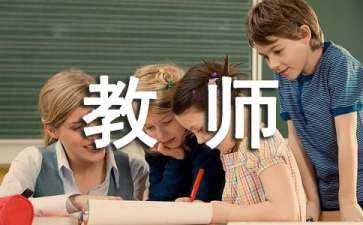The football match(通用4篇)
The football match 篇1
Lesson 62
Properties: Recorder, Overhead Projector
Teaching Objectives:
1. Understand the text.
2. Learn some useful expressions.
Language focus:
surprising / surprised, used to do something, lose to somebody,
unhappy/ unlucky, deserve to do something, become confident
Teaching Procedures:
I. Showindowsg the teaching aims
II. Revision
Check homework. Get the students to act out the dialogue.
III. Leading in
Get the students to look at the picture. It’s about a football match. Ask: What do you know about football? How many players are there on a team? (11) How do you play football? (You may try to kick the ball into the goal. And you can’t use your hands. Only the goalkeeper can use his or her hands. )
IV. Presentation
Let the students discuss the picture first, then ask: What’s happening in the paragraph? Then get the students to read the instructions. Try to find the answer. (The boy’s team has some very good players, but they were too confident, they played carelessly, so they deserved to lose.)
V. Reading
Look at Exercise 1 in the workbook. Read through the questions first, then read the text carefully. Discuss the answers with the partners. Finally check the answers with the whole class.
Deal with some difficulties in the passage.
VI. Practice
Play the tape. Listen to it and then repeat sentence by sentence. Give the students a few minutes to read the text aloud. Check their pronunciation.
VII. Workbook
Go through Exercises 2 and 3. Let the students do them individually, then check the answers together. The answers to Exercise 2 are: football, with, beat, lost, beaten, unhappy, confident, joke, carelessly, well, half, lost, windows, teamwork.
VIII. Consolidation
Review the football vocabulary, then let the students retell the story.
IX. Summary
Exercises in class
以“Football”为题,写一篇50~60个词的短文,要求语言流畅简练、准确。
提示词语:popular, all over the world, young people like, be good at, favourite sport, classmates, after school, often, play, hope
X. Homework
1. Finish off the exercises in the workbook.
2. Retell the story.
The football match 篇2
教学目标
教学目标
1.学习、运用表示委婉的否定、赞赏、决心、愿望和鼓励的用语。
2.掌握本单元的词汇和习惯用语,特别是deserve to, be pleased with, be angry with等短语的用法。
3.进一步学习过去完成时态,特别是它的时间状语的表示方式:作主句是过去时的宾语;由when引导的表示过去时间发生动作之前已发生的动作;有明确短语“By…”表示的过去动作之前已发生的动作。须注意的是:它表示过去的过去的动作对过去的影响或过去的过去的动作延续到过去。
4.认真学习“Girls beat boys”,掌握一些相关足球的术语:draw,kick,goal,etc.
5.继续进行书写日记的写作训练。
本单元所出现的词组与交际用语
1. 本单元词组
by the time 到…的时候
never mind 没有关系
spill over 溢出
from now on 从现在起;今后
deserve to 应受;值得
carry on 经营;继续(工作)
be pleased with 对于……感到满意
be angry with 对于……感到生气
Number 52 Middle school 第52中学
a big score 一个大比分
such an exciting match 一场如此激动心的比赛
in the last fifteen minutes 在最后十五分钟内
think of… 想起,考虑……
leave…at home 把……忘在家里
make a good football player 成为一名出色的足球队员
used to do 过去常做
lose to somebody 输给某人
beat them 4~3 4比3战胜他们
a team of girls 一支女队
the most embarrassing day of my life 我生活中最困惑的一天
deserve to windows 赢在情理之中
deserve to lose 理应输球
their best striker 他们的最佳前锋
the mid- field player 中场球员
feel a bit nervous 感觉有点儿紧张
make the score 2-1 2比1改写比分
in the second half 在下半场
go over 踢过
after that 从那以后
carry on working hard 继续努力工作
as a result 因为这个原因
keep passing the ball 坚持传球
expect to do 期望做某事
take part 参加
be busy with 忙于……
get hurt 受伤
receive a letter from sb. 收到某人的来信
2. 交际用语和句型
交际用语
表示感情 Expressing certain emotions
a. 喜悦 Pleasure, joy
It was great. 棒极了。
That’s a big score. 大比分。
b. 惊奇 Surprise
Wow! 哇!
Yeah! 是!
Oh dear! 天哪!
c. 感谢 Thanks
Thanks for your last letter. 感谢你的上次来信。
d. 日期 The time
Sunday, May 10. 五月十日,星期天。
主要句型
Statement 陈述句
He said he had never seen such an exciting match before. 他说他以前从来没看过这样精彩的比赛。
When I got to the check-out, I realized I had left my purse at home. 当我到达收银台的时候我意识到我的钱包忘在家里。
By the time I got there, the bus had already gone. 当我到达那儿的时候,公共汽车已经开了。
教学建议(一)
教材内容的分析
本单元是围绕足球赛这个话题展开的,学习了怎样谈论足球比赛,以及一些与足球比赛相关的实际用语。本单元的语法项目还仍旧是过去完成时态,通过一般过去时态与过去完成时态的比较,在第十四单元学过的基础上,进一步归纳总结了过去完成时态。它表示在过去某一时间之前发生的动作或状态;表示从过去某一时间开始,一直持续到过去另一时间的动作或状态;在复合句中表示两个动作的先后关系。认真学习“Girls beat boys”,掌握重点词汇和习惯用语的用法。本单元还要求我们继续进行书写日记的写作训练。同时,还要掌握英文书信的书写格式。
本单元重点例句及相关知识分析
1.Do you like watching or playing football?
你是喜欢足球,还是喜欢踢足球?
本句是选择疑问句,选择疑问句回答方式如下:
(1)“What would you like to have, coffee, tea or milk?”“None”.
“你要喝啥,咖啡、茶还是牛奶?””都不要。”(三者以上都不)
(2)“Who are you going to see, John or Bill?”“John.”
“你要去见谁,约翰还是比尔?”“见约翰。”(只选其中之一)
(3)“What would you like, rice or noodles?”“Either.”
“你要吃啥,米饭还是面条?”“随便。”(表示其中任何一个都行)
(4)“Do you want this book or that one?”“你要这本书,还是那本书?”
“I want both.”“两本我都要。”(两者都要)
注:两者都不要用neither,三者以上都要用all。
2. He said he had never seen such an exciting match before. 他说在以前他从来没有看到过这么激动的比赛。
句中such是形容词,意思是“这样,那样”,强化语气,表示惊奇的情绪,跟形容词连用。such an exciting match 相当于so exciting a match (这么激动的比赛)。如:
It was such a lovely day.相当于It was so lovely a day. 那是一个非常美好的日子。
I have never seen such a large one. 相当于I have never seen so large a one . 我从没有见过这样大的东西。
3. In a surprising result, the No .69 Middle School girls’ football team yesterday beat their school’s boys’ team. 报出冷门,第69 中学女子足球队战胜了他们学校的男子足球队。
句中beat 是动词,意思是“连续地打; 打败; 敲打”。beat后可接人或队名。意思是“击败对手。”如:
I can beat you at swimming. 游泳我比得过你。
The wheat was beaten down by the rain. 麦子被雨水打得倒伏了。
The rain beat against the windowsdow. 雨水打在窗户上。
beat 与windows、hit的区别:
windows意思是“赢得某个项目”,后面常接“match, game”。如:
He won a game. 他胜一局。
We won a match. 我们比赛得胜。
The boys were windowsning 2-0. 男孩们正以2比0获胜。
hit意思是“击中”(有时可表示“打一下”)。如:
The mother hit her child out of anger. 母亲生气,打了她小孩一下。
4. We all thought this would be an easy game. 我们都原以为这是一场容易的比赛。
句中的thought 是动词,意思是“原想;以为”。这是虚拟语气,注意从句用过去时,“表示结果不是这样”。如:
I thought he was a clever boy. 我原以为他是个聪明的男孩。( 他其实并不聪明)
区别:I think he is a clever boy. 我认为他是个聪明的男孩。(他很可能是聪明的)
5. He thought the girls deserved to windows. 他认为女队应该赢。
(1)deserve应该得到、值得,其后可带名词或不定式作宾语。
例:Good work deserves good pay. 好的工作应得好的报酬。
(2)deserve不能用于进行时态;deserving是个形容词,解释“值得的”,常与of连用。
例:be deserving of sympathy 值得同情。
6. His excellent shot went low to the left of the girls’ goal. 他以一脚刁钻的地滚球射向女队球门的左边。
句中low是副词,意思是“低下地,近地平线地”。如:
The sun sank low. 太阳西下接近地平线。
He spoke low just now. 刚才他低声讲话。
7. However ,after that the boys became relaxed and lazy, but the girls carried on working hard.然而,男队变得松懈和懒散,而女队却继续拼搏。
句中carried on working hard 相当于carried on with the work hard意思是“继续努力工作”。如:
He told them to carry on the work. 他叫他们继续工作。
carry on意思是“经营;继续”。如:
He carried on business for many years in HK. 他在香港经营商业多年。
They decided to carry on in spite of the weather.不管天气怎样他们决定继续做下去。
Rising costs made it hard to carry on the business.上涨的成本使得生意难做。
8. Then Li Xiaolin scored twice in the last six minutes to make the final score 4-3.
于是,在结束的前六分钟,李小琳第二次进球将比分锁定在4比3。
句中final 是形容词,意思时“最后的”。如:
The final game of the football will begin. 足球决赛将开始。
The final unit of the book is Unit18. 本书最后一单元是18单元。
9. I guess the girls are very pleased with themselves. 我猜女队对她们自己是非常满意的。
句中be pleased with意思是“对……高兴;对于……满意”。如:
I’m very pleased with what he has done. 我对他所做的一切非常满意。
We’re quite pleased with your success. 我为你的成功十分高兴。
10. At half time, Miss Wang told us,“From now on, just keep passing the ball and play together as a team.” 在半场(休息)时,王老师告诉我们,“从现在起,就要坚持传球,作为一个队整体配合。”
* 句中from now no 是介词短语,意思是“从现在起”。如:
We should study still harder from now on. 今后我们应更加努力地学习。
* 句中keep passing 是动词短语,意思是“坚持传……”。keep doing侧重表示“持续不停地做某事”或“持续某种状态”。如:
The girl kept crying all the time. 那个女孩一直在哭。
The 宝宝 kept sleeping about four hours. 这个幼儿连续睡了大约四个小时。
而keep on doing 表示“总不断做某事”,不表示静止状态。不能与sitting、sleeping、lying、standing这类词连用。如:
It kept on raining for seven days. 雨持续下了七天。
Don’t keep on asking such silly questions. 不要老问这些怪问题。
11. I expect that was funny. 我料想那是有趣的。
句中expect 是动词,意思是“认为;料想”是虚拟语气。如:
I expect that he went to town yesterday. 我以为他明天进城去。
— Will he be late ? — 他会不会迟到?
— I expect so. — 我想会的。
I don’t expect so. 相当于I expect not. 我想不会的。
12. …and it’s quite easy for players to get hurt.……运动员受伤是很容易的。
get, turn, become三个词都可作系动词用,表示状态的变化,后跟表语,但三个词的用法稍有不同。get强调情感、气候和环境的变化;turn强调色彩的变化;而become则强调职务、职称等的变化。如:
(1)The days are getting shorter and shorter in windowster.
冬季的白天越来越短。
(2)She couldn’t answer the question and her face turned red.
她回答不出问题,脸红了。
(3)-- How long have you been a teacher?-- For ten years.
你当老师有多长时间了?十年了。
When did you become(请记得收藏本站-一路高升范文网,以获取更多新鲜内容) a teacher? – Ten years ago.
你啥时候当的老师?十年前。
The football match 篇3
教学内容:the football match经点答疑
【学法旨要】
1.学好本单元知识的关键是啥?
本单元在语法上主要学习了过去完成时态,需要从理论上透彻的理解,才能熟练地运用。另外还学习了足球比赛知识,主要学习了谈论这些话题时的一些常用语。
2.学习本单元知识的目标是啥?
(1)掌握过去完成时态的用法。
(2)掌握有关足球用语。
【经点答疑】
1.你知道beat和windows之间的区别吗
beat和windows都可以表达赢得比赛,但在表达方式上是有区别的。
(1)beat是及物动词,后面是比赛的对手,通常是由某人来充当的。比如:
the girls beat the boys in yesterday's match. 女同学们在昨天的比赛中打败了男同学。
we are sure that we can beat that team. 我们确信我们能够打败那个队。
no. 14 middle school got beaten yeaterday. 十四中昨天被打败了。
(2)windows可作及物动词,也可以作不及物动词,但作及物动词时,后面一般加比赛,游戏等。比如:
which team won? 哪个队赢了?
he was determined to windows the race. 他决心要赢这场比赛。
tom won the game. he beat jim. 汤姆赢了这次比赛。他打败了吉姆。
windows the match/ a bet 赢了一场比赛/赌注
our team is windowsning3∶2. 我们队3比2领先。
2.score在句中怎样使用?
(1)可以作可数名词,表示(比赛中一方得的)分数。比如:
a high/big/low score 高分,低分
what's your score? 你得了多少分?
(2)作名词,表示二十。比如:
a score of people 二十人
three score and ten 七十
(3)scores为score的复数形式,表示很多。比如:
—how many people are there? 那里有多少人?
—there are scores of them. 有很多(人)。
(4)也可以作动词,表示(比赛中)得分或(考试中)得分。比如:
he scored two goals before half-time. 他在上半场得了两分。
she scored 120 in the iq test. 她在智商测试中得了120分。
3.by the time通常和啥时态连用?
by the time可以引导时间状语从句,主句搭配的时态需要根据实际情况选用。
(1)by the time后面如果跟的是过去时间状语,那么句子一般要用过去完成时。比如:
by the time i finished all my work, all of my classmates had gone home.
我完成作业的时候,我的所有同学都回家了。
by the time i got there, the bus had already gone. 我到那里的时候,车已经走了。
(2)by the time后面如果跟的是将来时间状语,那么句子一般要用一般将来时态或将来完成时态。比如:
by the time he gets back, i will finish the whole work.
他回来之前,我会把所有的工作都做完的。
by the time this letter reaches you, i will have left the country.
你接到这封信的时候,我已经离开了这个国家。
can you finish the work by five o'clock/tomorrow/next monday?
你能在五点钟/明天/下个星期一之前做完这工作吗?
(3)by the end of也是by的常用短语,用法上和by the time类似。比如:
by the end of last term, we had nearly finished the whole book.
到上个学期末为止,我们几乎完成了整本书。
by the end of november, mr black had written another two books.
到11月末尾为止,布莱克先生也写完了两本书。
country music will bring in 360 million dollars by the end of this year.
到今年底乡村音乐将盈利360万美刀。
4.realize和realise有啥区别吗?怎样使用?
realise是realize的另外一种拼写办法,我们常使用realize 。
(1)realize表示“意识到”,及物动词,但一般不用于被动语态,也不用于进行时态。比如:
realize one's mistakes 意识到某人的错误
she realized that he had been lying. 她意识到他一直在撒谎。
i fully realize why you did it. 我完全明白你为啥做它。
(2)realize表示“实现(计划)”等。比如:
realize one's hopes, ambitions, etc. 实现愿望,理想等
5.surprising与surprised怎样区分?
(1)surprising为形容词,表示“令人吃惊的”,主语一般是物,表示这种事物具有使人感到吃惊的性质。比如:
a surprising decision/news 令人吃惊的决定/消息
it's surprising that he lost 他竟然失败了,真是意想不到
(2)surprised表示“感到吃惊”,也是形容词,主语通常是人,表达的是某人因为看到某一surprising thing而产生的感情,常用于下列结构:be surprised at sth. / sb. ; be surprised to do sth. ; be surprised that。比如:
we were surprised at the news. 听到这个消息我们感到很吃惊。
we are surprised to see you are here. 我们万万没想到会在这里看到你。
i am surprised that he didn't come. 我很吃惊他竟然没来。
(3)①surprise n.惊奇,吃惊,令人吃惊的事。
②surprise vt.使(某人)吃惊,后面可以加名词或者代词作宾语。比如:
she is over 80 !you surprised me . 她80多了!真想不到。
(4)与以上两个词的用法相似的词有:interesting, interested; exciting, excited等。
6.“i told them before the match that they need to play well。”一句中need之后为啥要加to?
need可以作情态动词,也可以作实义动词,作实义动词时,后面跟带to的动词不定式。比如:
you needn't worry about it any more.(情态动词) 你不必再担心了。
—need you always come so early?(情态动词) 你需要每天都来这么早么?
— yes, i must.(no, i needn't.) 是的。(不,不用)
i need to leave right now.(实义动词) 我得马上就走。
do you need to mend the shoes today?(实义动词) 你今天就得修鞋吗?
注 need作实义动词的时,疑问句或否定句需要借助于助动词do, 而且在肯定句中need通常用作实义动词,例如课文中的这句就是。
7.怎样使用relax?
relax可以作及物动词,也可以作不及物动词。比如:
a holiday will help you relax after the exam.
考试后过假日有助于你缓解紧张的情绪。
go to have a sleep and relax yourself. 去睡一觉,休息一下。
8.你知道carry on表达啥意义吗?
carry on表示“继续做某事”,常用于以下结构:carry sth. on; carry on doing sth. / with sth. 。比如:
carry on working / with your work while i am away. 我不在的时候,要继续工作。
they decided to carry on in spite of the weather. 他们决定不管天气好坏都坚持下去。
9.be pleased with中使用的介词是with,而be surprised at中介词用的却是at,怎样区分?
一些表示感情色彩的形容词通常在后面加某些介词来表达产生这种感情的原因,但不同的形容词所搭配的介词各不相同,需要熟记。比如:
be pleased with 对……感到满意/高兴 be satisfied with 对……感到满意
be surprised at 对……感到吃惊 be angry with/about 对……感到生气
be sorry for 对……感到抱歉/遗憾
10.happen可以用在被动句中吗?
happen是不及物动词,不能用在被动句中,相当于take place。
(1)sth. happen 发生了某事。比如:
the accident happened last night. 事故发生在昨天夜里。
it won't happen again. 不会再发生这种事了。
(2)sth. happen to sb. 某事发生在某人的身上。比如:
nobody knows what has happened to him. 没有人知道他发生了啥事情
he has never thought this would happen to himself.
他从没想过这种事情会发生在他的身上。
(3)sb. happen to do sth 某人碰巧做了某事。比如:
when they came to talk about that book, i said a lot because i happened to have read that book.
当他们开始谈论那本书的时候,我说了很多,因为我碰巧读过那本书。
(4)it happened that碰巧发生了某事。可以和上面的句型转换。比如:
when he came, i happened to be there.=it happened that i was there when he came .
当他来的时候我碰巧在那里。
when they came to talk about that book, i said a lot, because it happened that i had read that book.=when they came to talk about that book, i said a lot because i happened to have read that book. 当他们开始谈论那本书的时候,我说了很多,因为我碰巧读过那本书。
it happened that i knew something about physics, so i could help her with it.
碰巧我懂一点物理,因此我也就能帮她了。
11.as a result后面可以加宾语吗?
(1)as a result表示的是一种结果,相当于so, 后面也可以加宾语,但加宾语的时候要加上介词, 表示的是事情的原因。比如:
as a result o f fog, an accident happened yesterday morning.
由于雾的缘故,昨天早上发生了一起事故。
many young people like pop music. as a result, pop music becomes more and more popular.
许多年轻人喜欢流行音乐,因而流行音乐变得越来越受欢迎。
as a result of the cutting of trees, a lot of good land has gone.
由于大量砍伐树木,许多好的土地都消失了。
(2)result单独使用也可以表达(运动、竞赛、考试等的)结果、比分、成绩、优胜者。比如:
the result of the match is a draw. 比赛结果不分胜负。
listen! here are the results. we will know who are the windowsners soon.
听!公布结果了。我们马上就会知道谁胜了。
The football match 篇4
Lesson 62
Properties: Recorder, Overhead Projector
Teaching Objectives:
1. Understand the text.
2. Learn some useful expressions.
Language focus:
surprising / surprised, used to do something, lose to somebody,
unhappy/ unlucky, deserve to do something, become confident
Teaching Procedures:
I. Showindowsg the teaching aims
II. Revision
Check homework. Get the students to act out the dialogue.
III. Leading in
Get the students to look at the picture. It’s about a football match. Ask: What do you know about football? How many players are there on a team? (11) How do you play football? (You may try to kick the ball into the goal. And you can’t use your hands. Only the goalkeeper can use his or her hands. )
IV. Presentation
Let the students discuss the picture first, then ask: What’s happening in the paragraph? Then get the students to read the instructions. Try to find the answer. (The boy’s team has some very good players, but they were too confident, they played carelessly, so they deserved to lose.)
V. Reading
Look at Exercise 1 in the workbook. Read through the questions first, then read the text carefully. Discuss the answers with the partners. Finally check the answers with the whole class.
Deal with some difficulties in the passage.
VI. Practice
Play the tape. Listen to it and then repeat sentence by sentence. Give the students a few minutes to read the text aloud. Check their pronunciation.
VII. Workbook
Go through Exercises 2 and 3. Let the students do them individually, then check the answers together. The answers to Exercise 2 are: football, with, beat, lost, beaten, unhappy, confident, joke, carelessly, well, half, lost, windows, teamwork.
VIII. Consolidation
Review the football vocabulary, then let the students retell the story.
IX. Summary
Exercises in class
以“Football”为题,写一篇50~60个词的短文,要求语言流畅简练、准确。
提示词语:popular, all over the world, young people like, be good at, favourite sport, classmates, after school, often, play, hope
X. Homework
1. Finish off the exercises in the workbook.
2. Retell the story.
推荐站内搜索:日记300字初中专升本论坛、2014成人高考分数线、阅兵式观后感500字、历年考研数学国家线、国庆周记400字左右、校园作文、2012年成人高考试题、未来的我 作文、湖北自考成绩查询系统、


 The football match(通用4篇)
The football match(通用4篇)


